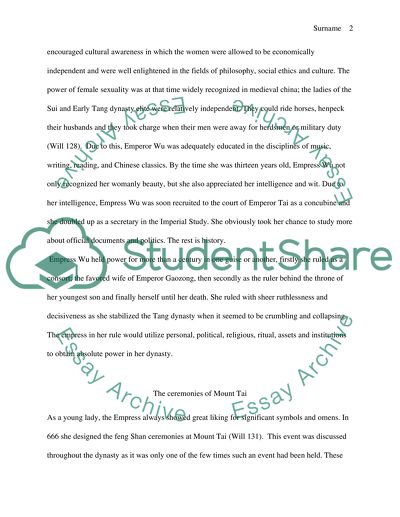Cite this document
(“Empress Wu Essay Example | Topics and Well Written Essays - 1500 words”, n.d.)
Retrieved from https://studentshare.org/history/1664021-empress-wu
Retrieved from https://studentshare.org/history/1664021-empress-wu
(Empress Wu Essay Example | Topics and Well Written Essays - 1500 Words)
https://studentshare.org/history/1664021-empress-wu.
https://studentshare.org/history/1664021-empress-wu.
“Empress Wu Essay Example | Topics and Well Written Essays - 1500 Words”, n.d. https://studentshare.org/history/1664021-empress-wu.


